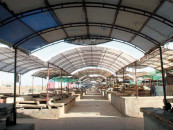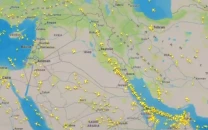Can aid salvage US-Pak relations?
Both, Pakistan and the US, must work harder to ensure that civilian aid actually reaches those it is intended for.

In view of worsening bilateral relations, US aid flows to the military remain suspended, including $2 billion in payments under the Coalition Support Fund. The disbursement of non-military aid, including the $7.5 billion pledged under the Kerry-Lugar Bill (KLB) has also been very slow. A US Congressional panel had reported reaching an agreement in December on freezing $700 million in aid to Islamabad, unless Pakistan stops the movement of fertilisers that militants in Afghanistan use in Improvised Explosive Devices to target American troops.
Appointment of our new ambassador to the US will provide impetus to bringing US-Pakistan relations back on track. In this regard, it would be vital to focus on not only resumption but also increased effectiveness of the US civilian assistance programme for Pakistan.
Recognising that the KLB is in grave danger, the Woodrow Wilson Centre in Washington DC has released a report this past month titled, “Aiding without abetting: Making US civilian assistance to Pakistan work for both sides”. This report warns that substantial midcourse changes are needed if the KLB is to fulfil the hopes associated with it.
Besides identifying strategic areas for aid investment, the report calls for policymakers on both sides to establish more realistic timelines for stepping up the percentages of US aid to be dispensed through the Pakistani government structures to prevent underutilisation or unavailability of committed funds. While proposing continued budgetary support for the Benazir Income Support Programme, it is suggested that the initiative be tightened to exclude political manipulation and also aim to move beneficiaries toward eventual independence, which is also a sensible suggestion.
However, insufficient attention is drawn to the underlying causes of poverty in the country, such as unequal land access in rural areas which remains a major reason for not only poverty but also social unrest. Although aiming to address such structural causes of deprivation may lead to resistance by vested interest groups, continuing to ignore such ground realities risks continued elite capture of incoming aid and its resulting impotency to make Pakistan a more equitable country.
Both, Pakistan and the US, must work harder to ensure that civilian aid actually reaches those it is intended for, instead of it being held captive to political agendas, or else being misappropriated. In this regard, formulation of more bottom-up instead of top-down aid policies and their genuine implementation would go a long way in allaying US concerns regarding its increasing unpopularity, while helping the Pakistani government curb the scrounge of militancy and deprivation, which has been growing domestically over this past decade as an inevitable outfall of the ‘war against terror’.
Published in The Express Tribune, January 22nd, 2012.














COMMENTS
Comments are moderated and generally will be posted if they are on-topic and not abusive.
For more information, please see our Comments FAQ